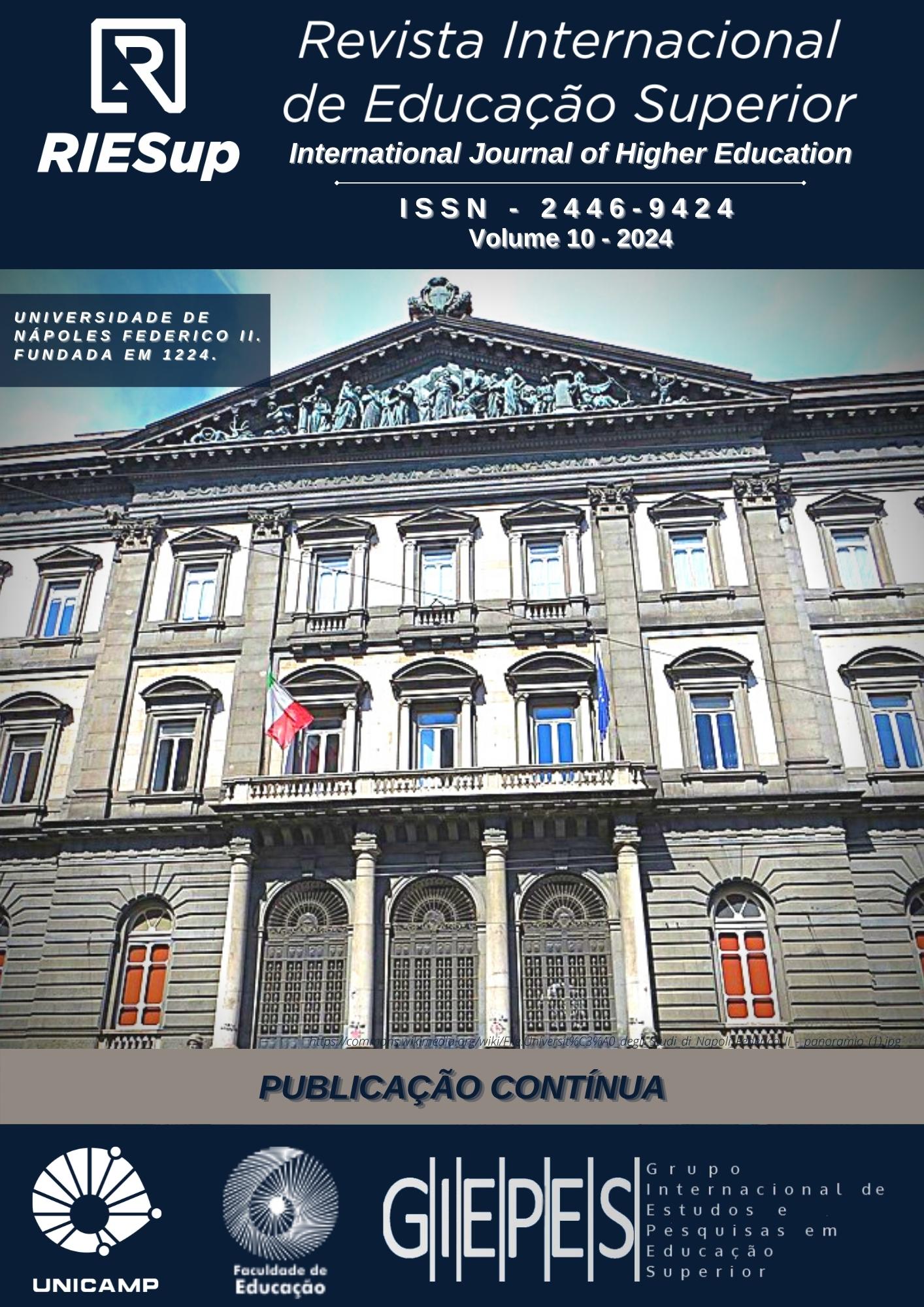Abstract
Introduction: This article takes part on the History of Education and the object of the study is the exchange between Brazil, through the Ministry of Education and Culture (MEC), and United States of America (USA), represented by the United States Agency for (USAID) - the famous MEC/USAID agreements, established in the period of the military dictatorship, from 1965 to 1968. In this way, the study focuses on the following guidelines: the research problem asks how MEC/USAID agreements could be instruments to the US hegemony over Brazil in the educational field. Objective: The objective is to understand the constitution of the US hegemony over Brazil, in the context of the MEC/USAID Agreements (1965-1968). Methodology: It is a bibliographical research, with a qualitative approach and it tries to stablish some discussions, based on the Critical Discourse Analysis of Fairclough (2001). Results/Conclusion: As a result of the study, it was verified that the US interest on the path of Higher Education in Brazil in the military regime, went beyond the discourse of modernization, because by encouraging a reorganization of universities, the US imposed from the ideological school apparatus, its hegemony as a great capitalist country.
References
AMORIM, Célia Regina; SILVA, Lanna Paula. Ditadura Militar (1964-1985): o movimento estudantil e a comunicação alternativa na Amazônia paraense. Revista Observatório, Palmas, v. 2, n. 5, p. 177-199, set./dez. 2016. Disponível em:
https://sistemas.uft.edu.br/periodicos/index.php/observatorio/article/view/2954.
BORDIGNON, Talita Francieli. A Aliança para o Progresso e a educação como pretexto para a consolidação do capitalismo. In: SIMPÓSIO NACIONAL DE HISTÓRIA – ANPUH, 21., 2011, São Paulo. Anais...São Paulo, ANPUH-SP. Disponível em: https://bit.ly/3DF1zgB .
BURKE, Peter. Testemunha Ocular: História e imagem. Tradução Vera Maria X. dos Santos. Bauru: EDUSC, 2004. p. 153-174.
COSTA, Priscila Borba. O Destino Manifesto do povo estadunidense: uma análise dos elementos delineadores do sentimento religioso voltado à expansão territorial. In: CONGRESSO INTERNACIONAL DE HISTÓRIA, 5., 2011, São Paulo. Anais... São Paulo: Universidade Estadual de Maringá (UEM), 2011. p. 2267-2276.
CUNHA, Luiz Antônio. A universidade reformanda: o Golpe de 1964 e a modernização do Ensino Superior. 2. ed. São Paulo: UNESP: 2007.
DELGADO, Lucília. O Governo João Goulart e o Golpe de 1964: memória, história e historiografia. Revista Tempo, Rio de Janeiro: UFF, v.14, n. 28, p.125-145, 2009. Disponível em: http://www.historia.uff.br/tempo/site/?p=390.
FAIRCLOUGH, Norman. Discurso e mudança social. Trad. Izabel Magalhães. Brasília: UnB, 2001.
GRAMSCI, Antônio. Cadernos do cárcere. 2. ed. Tradução Carlos Nelson Coutinho. Rio de Janeiro: Civilização Brasileira, 2001.
HALL, Stuart. Identidade cultural na pós-modernidade. Tradução Tomaz Tadeu da Silva; Guacira Lopes Louro. 11. ed. Rio de Janeiro: DP&A, 2006.
HOONAERT, Eduardo. A Amazônia e a cobiça dos Europeus. In: ______. (Coord). História da Igreja na Amazônia. Petrópolis: Vozes, 1992. p. 46-92.
KARNAL, Leandro et al. A história dos Estados Unidos: das origens ao século XXI. São Paulo: Contexto, 2007.
KARNAL, Leandro. Estados Unidos: a formação da Nação. São Paulo: Contexto, 2017.
MONIZ BANDEIRA, Luiz Alberto. A CIA e a técnica do Golpe de Estado. In: Maria Ribeiro Valle (Org.) 1964 – 2014: Golpe militar, História, Memória e Direitos Humanos. São Paulo: Cultura Acadêmica, 2014. p. 11-26.
PEREIRA, Gabriel Terra. A diplomacia da americanização em Salvador Mendonça. São Paulo: UNESP, 2009.
PINA, Fabiana. O acordo MEC-USAID: ações e reações (1966-1968). In: ENCONTRO REGIONAL DE HISTÓRIA: poder, violência e exclusão, 19., 2008, São Paulo. Anais... São Paulo: Universidade de São Paulo, 2008.
PINA, Fabiana. O acordo MEC-USAID: ações e reações (1966-1968). 2011. 187 f. Dissertação (Mestrado) – Universidade Estadual Paulista, Faculdade de Ciências e Letras de Assis, 2011. Disponível em: http://www.hdl.handle.net/11449/93369.
RIBEIRO, Ricardo Allagio. A teoria da modernização, a Aliança para o Progresso e as relações Brasil/Estados Unidos. Perspectivas, São Paulo, v. 30, p.151-175, 2006. Dossiê Cidadania cosmopolita, Democracia e Sociedade Civil global.
REZENDE, Tadeu V. de. A conquista e a ocupação da Amazônia brasileira no período colonial: definição das fronteiras. 2006. 356f. Tese (Doutorado em História) - Universidade de São Paulo, São Paulo, 2006.
ROSAS, Paulo. Para compreender a educação brasileira. Rio de Janeiro: Paz e Terra, 1992.
TOTA, Antônio. Pedro de. O imperialismo sedutor: americanização do Brasil na época da Segunda Guerra Mundial. São Paulo: Cia. das Letras, 2000.

This work is licensed under a Creative Commons Attribution 4.0 International License.
Copyright (c) 2022 Darllen Almeida da Silva, Norma Iracema de Barros Ferreira



